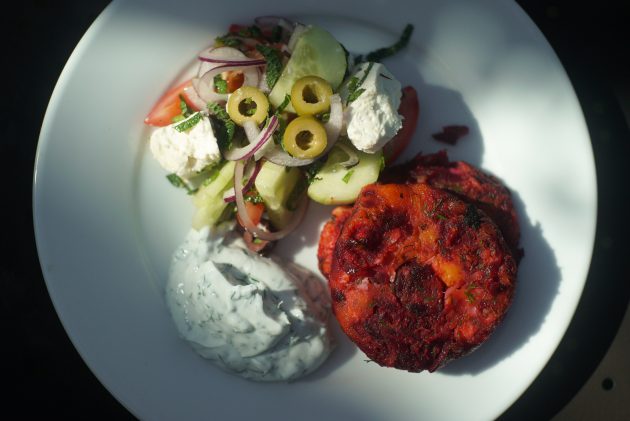Bootcamp: Elite sports chef Omar Meziane talks us through the boost you can get with wild seafood. This is a sponsored feature.
“Fish is great for reducing inflammation of joints and more,” Omar Meziane, chef with Harlequins and England, tells Rugby World. There are also reports that eating certain fish can lower blood pressure and potentially decrease the risk for heart disease.
Including fish in the diet is simple. Canned Alaska salmon is perfect for quick and healthy pasta, sandwiches and wraps. Both fresh and frozen fillets of wild salmon, Alaska pollock and Pacific cod are great sources of protein to add to curries, soups and bakes for a more substantial meal. Smoked wild Alaska salmon, while slightly more decadent, is the ideal ingredient for impressive starters and brunches.
Talking about the elite sports approach to consuming fish, Meziane adds: “We want the boys to be able to recover as quickly as possible, especially when the season is starting. Fish is a great choice. It’s a great way of trying to help them and aid their bodies as much as possible for peak performances.

Meet the chef: Omar Meziane (pic via Alaska Seafood UK)
“We have to consider carefully what they are eating, one of the recipes I put together is actually a kind of recovery meal which uses Alaska pollock and curry sauce. It’s also high in turmeric and ginger.”
The health benefits of eating wild seafood are easy to discover, but the problem for a lot of keen athletes is building versatility into their diet during intense training weeks. Below, Meziane gives us a recipe for roasted Alaska pollock with yellow curry sauce.
Want a bit more inspiration? You can visit Alaska Seafood’s recipe site here https://www.alaskaforeverwild.com/meal_type/eating-for-fitness/
and why not check out @AlaskaSeafoodUK on Twitter.

Delicious dish: The Alaskan Pollock Yellow Curry (Markus Dell)
Roasted Alaska Pollock with Yellow Curry Sauce
Serves 2
Another curry, but this time with Alaska pollock. The medley of spices I have infused together act as an anti-inflammatory, which helps for post-training or match recovery.
Curries go down really well with the team – and this one is a particular favourite of Danny Care.
Ingredients:
2 fillets of Alaska pollock 160g-180g
Sea salt
White ground pepper
For the curry paste
1 shallot finely chopped
1 lemongrass stalk peeled and chopped
2 red chillies chopped
2 garlic cloves chopped
Handful coriander chopped
1 cm piece of ginger
1 tsp. mild curry powder
1 pinch chilli powder
1 tsp. turmeric
1 tsp. honey
Pinch of salt
For the curry
1 lemongrass stalks bashed with back of knife
1 tbsp. coconut oil
½ aubergine chopped into cubes
400ml coconut milk
1 yellow pepper chopped
100g sugar snap peas
150g plum tomatoes roughly chopped
Handful Thai basil chopped
Method:
- Pre-heat your oven to 180oc.
- Place all the ingredients for the curry paste into a blender and blend until smooth.
- Heat a large deep saucepan over a medium heat and add 1tbsp of coconut oil. Spoon in the curry paste and cook for 1-2 minutes continually stirring. If the paste starts to brown remove from the heat and allow to cool slightly. Now add the coconut milk to the curry paste along with the chopped tomatoes, yellow pepper, aubergine and lemongrass, turn the heat down to low and continue to cook gently for 8-10 minutes.
- Place the pollock fillets onto a baking tray and season with salt and pepper. Place into the oven and cook for 8 minutes. Once the pollock fillets are cooked remove from the oven and place each piece into a serving bowl.
- Gently ladle over the curry sauce and serve immediately.
Chef’s tip: For a high carb option, add rice.
This piece is in association with Alaska Seafood. You can follow them on Twitter at @AlaskaSeafoodUK.
Don’t forget to follow Rugby World on Twitter, Facebook and Instagram.





